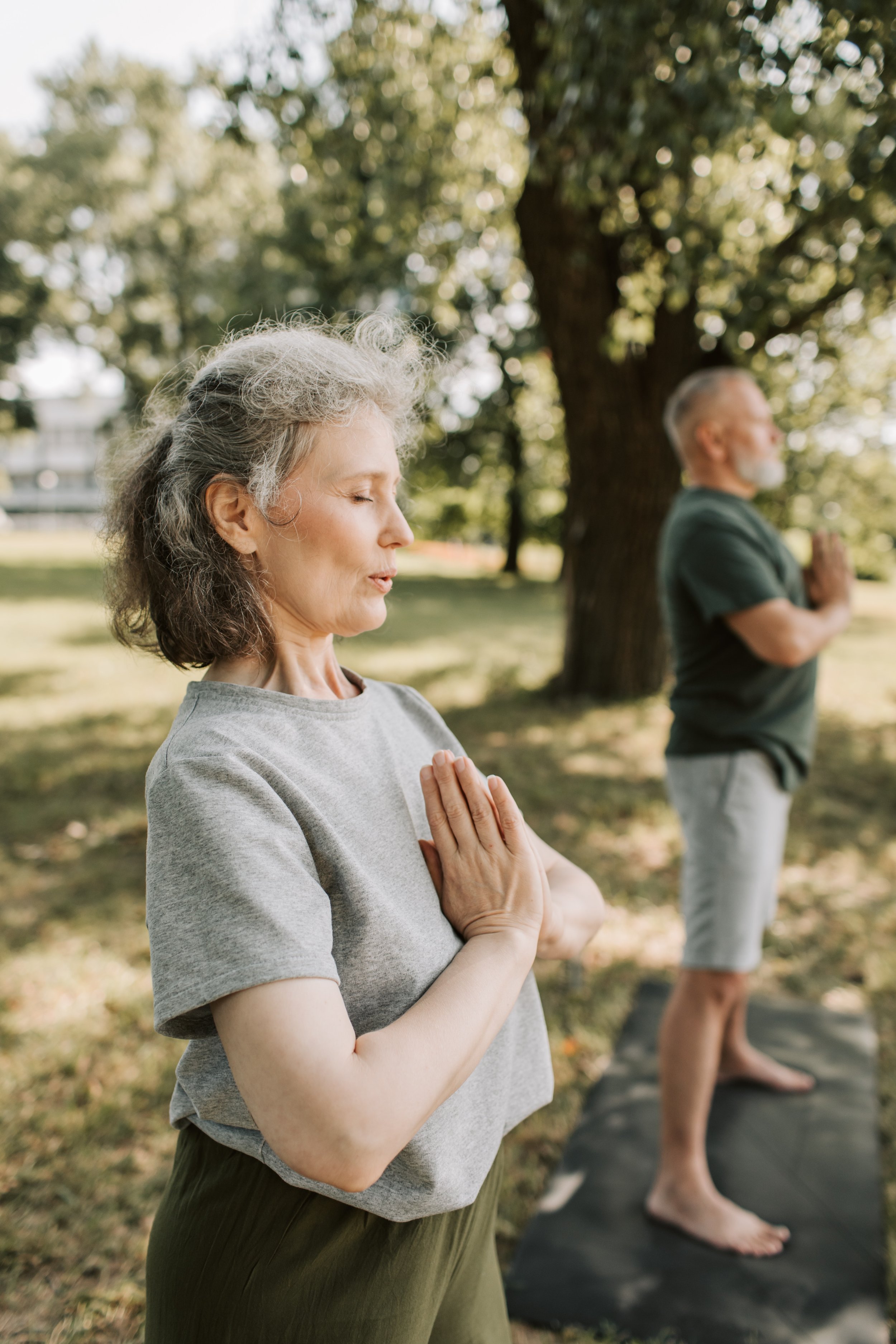Pilates for older adults.
Whatever your age or fitness level, with its slow controlled movements, Pilates is great exercise. It offers a range of benefits, particularly for more senior practitioners, who can really benefit from staying active.
Pilates is gentle and modifiable
The great thing about Pilates is that many of the activities can be modified to suit individual needs. They can be performed while lying or sitting and with minimal weight bearing while still offering all the benefits associated with Pilates. Movements are slow and controlled using the body’s own natural resistance, ideal for those with limited strength or who have to avoid high-impact activity.
Pilates helps to increase stability and balance
As we age, we can become less steady on our feet. Falls causing serious injury are particularly a risk for older adults. Because Pilates concentrates on the core and improves the stability and flexibility of the abdominal and spinal muscles as well as focusing on control, balance is greatly improved. There are also a number of exercises that focus on the legs, strengthening the muscles for better stability.
Pilates helps to improve breathing and circulation
When we get older, we’re more likely to be sedentary, which can contribute to a range of health conditions, such as cardiovascular disease, obesity and muscle and bone deterioration. Like any exercise, Pilates will improve your activity levels, with the style of movements in Pilates helping you to become more mobile through strengthening and stretching your muscles.
Pilates improves and maintains mobility
When we get older, we’re more likely to be sedentary, which can contribute to a range of health conditions, such as cardiovascular disease, obesity, and muscle and bone deterioration. Like any exercise, Pilates will improve your activity levels, with the style of movements in Pilates helping you to become more mobile through strengthening and stretching your muscles.
Pilates supports bone density
As we age, our bones lose some of their density, and is a particular problem for post-menopausal women, among whom osteoporosis is more prevalent. Regular Pilates exercises can support bone density with the use of weightbearing movements.
Pilates enhances mental function
Pilates is not just great for the body: it’s great for the mind too. Studies show that Pilates increases blood flow to the brain, while learning and practicing the slow, controlled movements contributes to maintaining neural pathways. It also decreases stress and improves mood, getting the endorphins flowing. The focused breathing builds awareness and inward focus and calms the nervous system.
That all sounds pretty great! Are you ready to join a class with us?
Your Space. Your Community. Your Studio.






